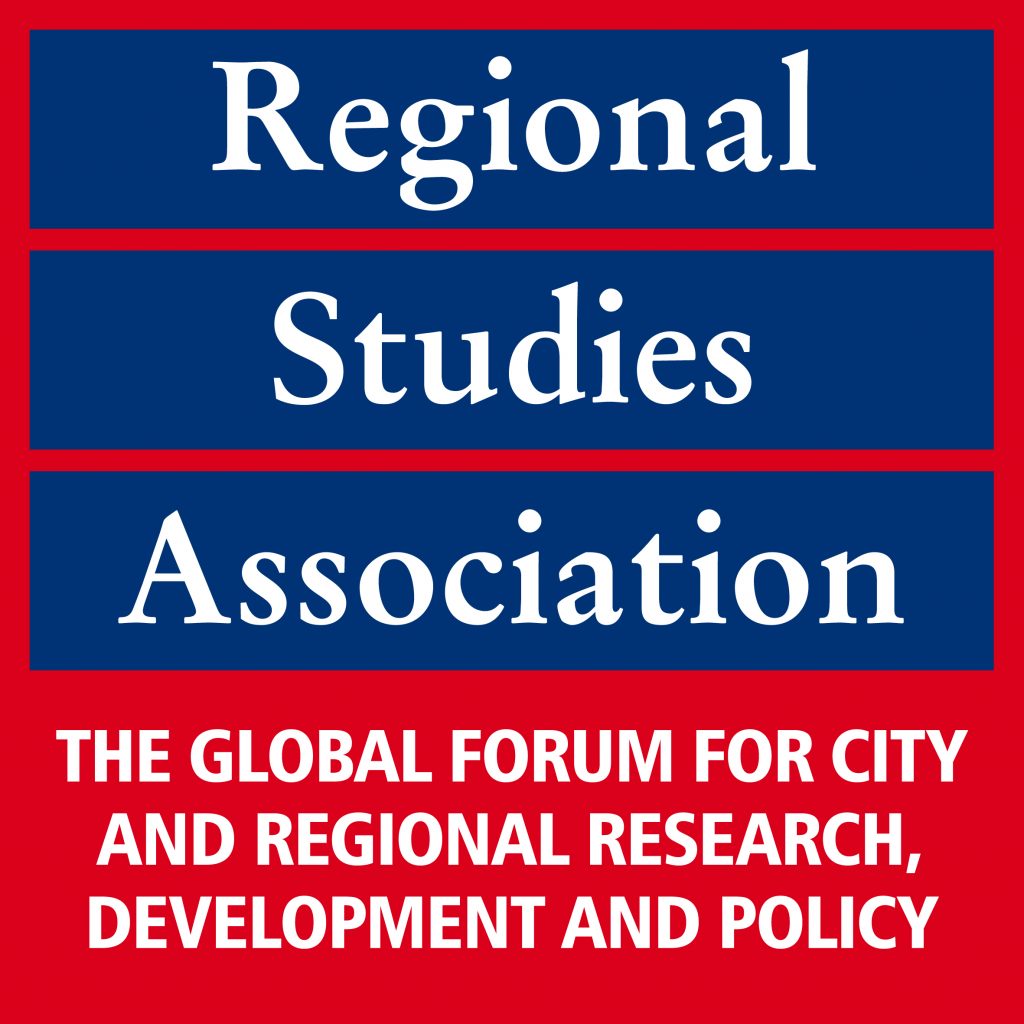 At the Regional Studies Association Annual Conference 2017 held in Dublin, my paper “Smart Specialization, Regional Growth and Applications to European Union Cohesion Policy” published by Regional Studies and co-authored with Professor Philip McCann from the University of Sheffield received the 2016 Award for the Best Paper in Regional Studies. It was voted the best paper out of the 125 papers published in the journal during the previous year.
At the Regional Studies Association Annual Conference 2017 held in Dublin, my paper “Smart Specialization, Regional Growth and Applications to European Union Cohesion Policy” published by Regional Studies and co-authored with Professor Philip McCann from the University of Sheffield received the 2016 Award for the Best Paper in Regional Studies. It was voted the best paper out of the 125 papers published in the journal during the previous year.
The paper aims to achieve two objectives. Firstly, it examines the smart specialization concept and explains the challenges involved in applying this originally sectoral concept to an explicitly spatial and regional setting. Secondly, it explains the ways in which this might be achieved so as to make the concept suitable as a building block of a reformed European Union cohesion policy.
The smart specialization concept evolved as a response to the challenges associated with innovation policy design in the European context, and more recently it has become of widespread interest for a range of other OECD countries. The distinctive feature of the smart specialization concept is that it builds on various literatures (innovation systems, entrepreneurship, growth and transaction costs literatures) in order to provide a clear policy-prioritization logic which is well suited to promoting innovation in a wide variety of regional settings.
Originating in the literature analysing the transatlantic productivity gap which emphasizes the importance of adoption, adaptation and diffusion of general purpose technologies and ICTs, the smart specialization concept assumes that context matters for the potential technological evolution of innovation systems (knowledge ecology). The systems way of thinking underpinning the smart specialization approach explicitly acknowledges that for reasons of history and hysteresis regions vary not only in terms of their technological and industrial competences, but also in terms of their potential evolutionary trajectories.
The paper gives answers to three main questions with regards to the suitability of the concept in a regional cohesion policy setting: “How is the smart specialization concept to be applied as a regional policy tool when the smart specialization logic appears to favour other types of places?”; “Why should the smart specialization concept to be applied as a regional policy tool when the smart specialization logic favours other types of places?”; “Do the answers to the first two ‘how’ and ‘why’ questions imply the death-knell of smart specialization as a regional policy tool for cohesion policy?”.
The justification for using smart specialization as a regional policy tool can be found in answers to these questions, and links closely to the wider debates regarding the regarding the rationale and efficacy of space-neutral and sectoral approaches versus place-based approaches to policy. The place-based approach deals with a broader range of issues than smart specialization, but it advocates employing appropriately designed local knowledge- and learning-enhancement tools in regional policy. This is important because the smart specialization concept is essentially a way of thinking about local knowledge-enhancement and learning-enhancement systems, and using it in a local and regional territorial place-based development policy setting such as EU Cohesion Policy is fully justified. However, if smart specialization is to be successfully integrated into regional policy, it is necessary to develop regional policies that promote technological diversification amongst the most embedded local industrial activities in the context of global value chains which have the relevant scale to generate significant local impacts, whilst at the same time promoting the connectivity of the region maximising local knowledge spillovers and learning linkages.
From a regional policy perspective the smart specialization approach offers a range of advantages for the design of appropriate innovation policy-making, while allowing for the varied evolutionary nature of regional economies. Smart specialisation appears to be better suited for intermediate regions with strong industrial based structures than for urban areas which are highly diversified. The possibilities seem to be more limited in the case of isolated regions, although the approach can be used to generate the framework conditions needed for instance to foster connectivity to more central core regions.
The paper discusses some of the challenges that may appear when implementing smart application to regional policy. The onus of responsibility is clearly put onto the policy designers and funders of the strategy. The policy-tailoring will require resource prioritisation and concentration in the provision of public goods as well as a the profiling, monitoring and evaluation of the systems in place. The designers may face problems of rental capture by local elites trying to restrict the openness, newness, variation and differentiation needed in these strategies if they perceive that their localized monopoly positions may be threatened.
The paper finalizes with a reconsideration of how the smart specialization logic should be incorporated into a reformed EU cohesion policy. It should be understood as a partnership-based policy process of discovery and learning not only focused on ICT-related networking suggestions. It should avoid ‘picking winners’ and if feasible incorporate other related approaches including the upgrading of local supply chains, the redesign of local labour-training systems or the promotion of university-industry linkages. Summing up the approach, we should aim at considering potential innovation and entrepreneurial opportunities linked with the existing assets, its realistic diversification potential, and design appropriate policy interventions on the basis of these features and the intended outcomes of the policy.
For a further reading the paper can be found in http://www.tandfonline.com/doi/full/10.1080/00343404.2013.799769
